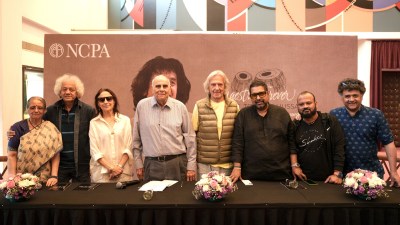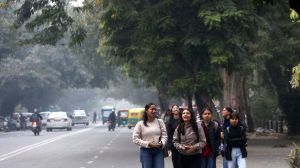Abhijit Banerjee’s Chhaunk is an invitation to a less discriminatory, and more open, tolerant and curious society
The book prods the reader into discussions on issues that are sometimes seen as the domain of experts, policymakers, perhaps activists: how to draw more women into the workforce? How to deal with the epidemic of depression afflicting the elderly? Why is affirmative action important? How can people be nudged into saving energy?
 Finnish Dish Pirakka (Pic from Getty Images)
Finnish Dish Pirakka (Pic from Getty Images)What exactly are food choices? Is it about selecting from a menu in the mind, using ingredients intelligently and following that up with a dexterous application of salt, fat, acid and heat? Is what’s on the plate just about taste? Or, is it also governed by environment, economics, geography and social mores? In some ways, these questions about culinary cultures also mirror the queries social scientists ask about their subjects. Economics, as Abhijit Banerjee tells us in Chhaunk: On Food, Economics and Society likes to limit self-interest to the pursuit of one’s material well-being. Behavioural economics, in contrast, is about the ways in which social pressures play a role in people’s choices. In Chhaunk, Banerjee teases out connections between the social conduct of human beings — gender relations, trade, energy use — and tempers it with recipes to serve a lip-smacking introduction to the methods of behavourial economics. The smorgasbord leaves the readers spoilt for choice, with Cheyenne Olivier’s illustrations — in themselves commentaries on the text — at the beginning of every chapter inviting them to join the discussion and widen their palates.
The book is also the authors’ tribute to two important people in their lives — Banerjee’s mother and Olivier’s father. Both are no more. Both, as Banerjee writes, were people of ideas — “liberal, opinionated, loving, engaged with the world, and committed to living well”. The tribute draws us to the ways “families and circumstances shape who we are”. Families are the first influence on gender relations, they play a part in career choices. Directly or indirectly, they leave their mark in ways we deal with the outside world — and the closeness of kin, or the lack of it, has a role in how people age. Chhaunk, therefore, also prods the reader into discussions on issues that are sometimes seen as the domain of experts, policymakers, perhaps activists: how to draw more women into the workforce? How to deal with the epidemic of depression afflicting the elderly? Why is affirmative action important? How can people be nudged into saving energy?
Cardinal to the social scientist’s calling is the principle of observing a distance from her subject. Her analysis shouldn’t reflect the subject’s inclination or biases. Yet, there’s another, under-discussed aspect, of the social scientist’s work: appreciating the lived experiences of another person requires empathy from the specialist. It helps to put oneself in another’s shoes. Perhaps, the hardest task for social scientists is balancing distance and empathy.
Chhaunk addresses this imperative with a lightness of touch. As Banerjee points out, “There is no one rational choice in many situations”. Understanding people’s circumstances, in fact, helps the economist put forward his conclusions more forcefully — especially when it’s about discriminatory practices such as those “that keep women from finding a job without actually allowing them to take it easy”. At times, it leads Banerjee to draw links between social conditioning and some of the delicacies many of us — including this reviewer — take for granted. The ghonto, or the delicately flavoured mélange of vegetables, for instance. As Banerjee writes, “In the lower delta of Bengal, they (women) wade into rice fields, straining the standing water over and over through their pallu to catch a handful of little fish or shrimps. These might flavour a ghonto, for which they will also need some wild greens to pick”.
It’s such sensitivity that leads the economist to not be harsh on parents who miss out on vaccination deadlines. Instead, he suggests what to do to make sure they do not make such mistakes. “Why parents in India often fail to vaccinate their children has a lot in common with the dual self-problem. One self knows that it needs to be done. The other suggests that it could wait till tomorrow, especially since there’s housework and your child will scream her head off when she sees the needle”. A little nudge helps address such predicaments — “a promise of a little gift, when people turn up at the vaccination centre alters the calculus completely”. Giving parents something to look forward to, writes Banerjee, can “more than double the vaccination rate”. Commitments work when not entirely divorced from pleasure.
At the same time, Banerjee is alert to the other side of the human story: abstinence. Saving is not always easy. For a poor person, it’s an arduous task. And even for those for whom the choice isn’t always dire, numerous options must be resisted – “A child has to be told that the luminous pink kulfi will have to wait till next week, the chilli pakora calling from across the street will have to be left unanswered”. The thrift imperative then finds its way to the kitchen, most often adding to the repertoire of flavours and textures. Read Chhaunk if you want to find links between shami kebab, or fish tikka, and savings. For vegetarians there’s the Finnish delicacy pirakka, delicately spiced with kalonji.
The economist’s imperative for accuracy and the food afficionado’s soft spot for precision come together in the recipes. When to add which ingredient, in what measure, how much to heat the oil or the oven, even the amount of salt — the recipes have them all.
Chhaunk is an invitation to a less discriminatory, and a more open, tolerant, responsible, and curious society. With curries, pulaos, breads, salads, pies, cakes, sweets and savouries, the reader will find this invitation impossible to resist.
- 01
- 02
- 03
- 04
- 05































